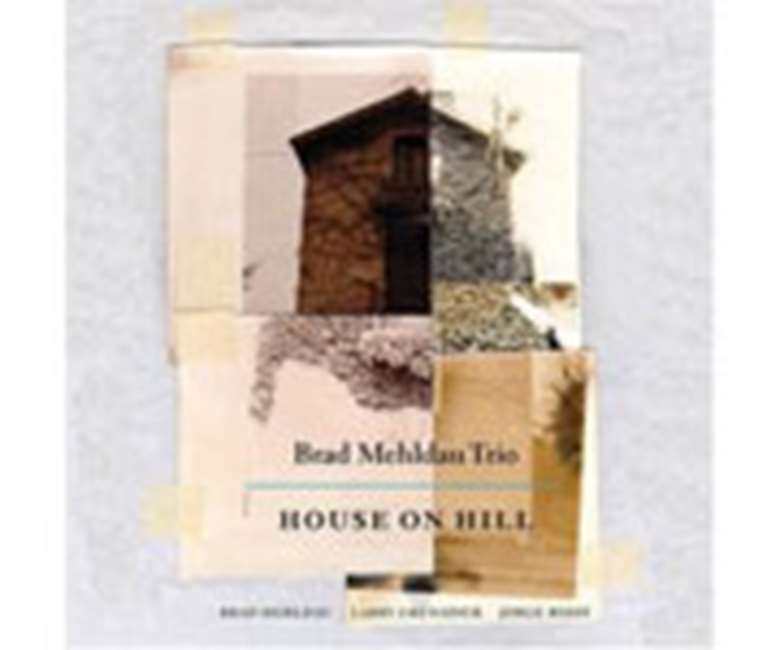Brad Mehldau | House on Hill
Wednesday, August 9, 2006
Brad Mehldau (p), Larry Grenadier (b) and Jorge Rossy (d)

Brad Mehldau/Reneé Fleming Love Sublime
Nonesuch 7559 799 522 ***
Brad Mehldau (p) and Renée Fleming (v).
It would be interesting to know if Mehldau, who has invoked the likes of Kant, Schopenhauer, Heidegger, Nietzsche, Thomas Mann and Rainer Maria Rilke in his liner notes, has read anything of the Italian writer/poet/philosopher Eugenio Montale. If he did, he would know that Montale was properly afraid of "too much light" that over exposure to his work would rob it of its secrets and intimacy. Perhaps, though only let it be whispered for now, we are seeing too much light being shed on the work of pianist Brad Mehldau.
These albums bring the total number of his albums in the last 12 months to four, with another on the way. With each succeeding release since Introducing Brad Mehldau in 1995, his major label debut as a leader, there has been a rush to acknowledge his importance as an artist but less willingness to hail his every creation a major work of art. In the same way similarity of phrase and construction recur in the works of Homer and Virgil, we hear them in the playing of Mehldau, not perhaps as evidence of an impoverished vocabulary but as punctuation marks during his transformations of the American popular and pop songs. House On Hill comes from the same 2002 sessions that produced Anything Goes.
There is the now signature foray into the Radiohead oeuvre, this time ‘Everything In The Right Place’, and his work here and throughout the album seems, in retrospect, so much more of a piece with Jorge Rossy, who seems a better fit than his new drummer Jeff Ballard (2006’s Day Is Done). In House On Hill everything is in terse proportion, a carefully controlled abandon that seems to say, "Look where self indulgence can lead you." Perhaps this is a holdover from the Young Lions/Neo-classical era, where Mehldau first gained recognition as an outstanding pianist for Joshua Redman, where there was no way that their music, so much in the shadow of the great master musicians, could not be self-conscious. Being that, it had small chance of being spontaneous, and you sense this feeling lingering in Mehldau’s playing, where it must be said, his scrupulous precision is a part of his ultimate charm.
Love Sublime, a collection of duets with soprano Renée Fleming based on the poems of the Austrian poet Rainer Maria Rilke and others may be for some something of an acquired taste, so posing the question – is it a taste worth acquiring? I would say yes, as this song cycle deals with the centuries old themes of faith and doubt, youth and aging, male and female-ness, romantic yearning and mature reflection. It is perhaps slightly unfair to review this contemporary classical song cycle in a jazz magazine, but it does serve to illustrate the range of Mehldau’s abilities, and how, even in classical context, how private communication becomes a public sharing of deep secrets, an ever present aspect of Mehldau’s playing so valuable in a time of shallow rhetoric.
Stuart Nicholson